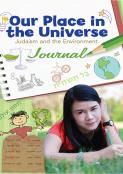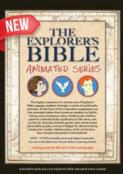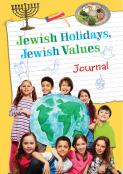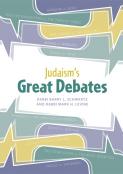- Home
- Play & Learn Home
- Online Enrichment
- Experience Modern Israel
- Israel It's Complicated
- Jewish and Me
- Jewish Holidays Jewish Values
- Jewish Values in Genesis and Jewish Values in Exodus
- Min Ha’aretz
- Our Place in the Universe
- Simply Seder
- The Prophets: Speaking Out for Justice
- Making T'filah Meaningful
- Make, Create, Celebrate
- Yom Haatzmaut Resources
- Hebrew Apps
- About The OLC
- What is the OLC?
- Introduction
- Get Started
- Resources
- OLC Content
- Parent Materials
- See My OLC Classes
- Store
A Bridge from Experience to Meaning
Written by Behrman House Staff, 10 of June, 2014
Wrestle through Environmental Dilemmas, Reflect on the Values in our Holidays using New Student Journals
Jewish Values in Game Form
This blog entry was posted by Vicki L. Weber
When you teach your child, use a carefully edited text. -Rabbi Akiba
The experience of digging into Jewish texts and reflecting upon Jewish concepts is a vital component that helps create learning experiences with meaning and place them in a specifically Jewish context. Yet according to research scientist and Brandeis professor Dr. Amy Sales, “The research on goals in experiential Jewish education (EJE) shows a strikingly low priority placed on Jewish subject matter.” In other words, Jewish experiential education may be content light. (see Sales' article)
Factors such as an emphasis on getting kids simply to return (to school, to camp, to synagogue), a feeling that education and experience are oppositional, and a triumph of individualism over collective Jewish experience work against bringing content into any given get together.
Judith Schiller, Retreat Institute Director at the Jewish Education Center of Cleveland, also writing about experiential education, describes with some passion the richness that text study added to her own memorable experience on a ropes course. In her work she has hit upon another possible reason for experiential education that brings more activity than learning: educator fear. “Too often the notion of “text study” feels intimidating, and assumed to be dry and boring for educators as well as participants.” (see Schiller's article)
This is a place where well-conceived, carefully constructed books and other materials can make a real difference. According to Behrman House president David Behrman the text book plays a central role in creating a conversation of substance among learners and educators. Such conversation guides can help give education staff the ‘permission’ Schiller says they need to interpret and relate to text, and to allow their learners to do the same.
In our post-modern world, where knowledge is more plentiful and accessible than ever before in human history, it is probably true that we no longer need to set a course of study that distills a fixed and broad array of academic subjects for learners. This seems most especially true in the Jewish educational setting—we actually don’t need to cover everything, and we don’t have time to do that anyway. Yet we do need to create opportunities to engage intellectually and emotionally with something as a way to process our experiences and place them in the context of our history and our community. That something is authentic content. As Schiller suggests, we need a text at the core—whether as an anchor to our learning, or as a beacon to guide us.
How do you bring content into your setting? What tools and methods do you use to create a bridge from experience to Jewish context, meaning, and identification?
____________________
Looking for materials that can help you bridge content and experience?
These titles from Behrman House can help:
Teach Me Torah (grades K-1): simple yet dramatic language enhanced by detailed, colorful illustrations gives young learners an opportunity to explore and question text.
Let’s Discover Mitzvot (grades K-2): younger children can experience mitzvoth in their own lives, and then reflect on them together through poems, artwork, thought activities, and questions.
Explorer’s Bible and Explorer’s Bible Animated Series (grades 3-5): age-appropriate, true-to-text translation lets elementary school aged children wrestle with and interpret text, while they explore connections between text and key Jewish values.
Manga Midrash (grades 4-6): texts in graphic novel style let young learners develop their own midrashim on four key passages.
Living Jewish Values (grades 4-6): help students unpack sixteen Jewish values and question how they influence their own lives and their relationships with friends, family, and the greater community.
Our Place in the Universe Journal (grades 6-8): guide students to consider their individual relationships with the natural world through the day to day decisions they make in their lives.
Jewish Holidays Jewish Values (grades 4-6) encourage students to make meaning of holiday rituals celebrations through reflection and exploration of the values they discover in them.
Jewish Values Challenge Cards (grades 6 and up): disrupt conventional thinking with card games that help learners question the values they live by.
Teaching Guides and Lesson Plan Manuals for each underlying title include many ideas for combining experiences with content and reflection opportunities using a variety of learning protocols.





